A new study is turning the scientific community upside-down. Researchers from the University of Ottawa suggest the universe might not contain dark matter, a component that has been a fundamental part of cosmological models for years.
Dark matter is a term used in cosmology to describe a type of matter that does not interact with light or the electromagnetic field, making it invisible and detectable only through its gravitational effects. Scientists have long believed that dark matter makes up about 27 percent of the universe, with ordinary matter constituting less than 5 percent, and the rest being dark energy. This understanding has helped explain the behavior of galaxies, stars, and planets.
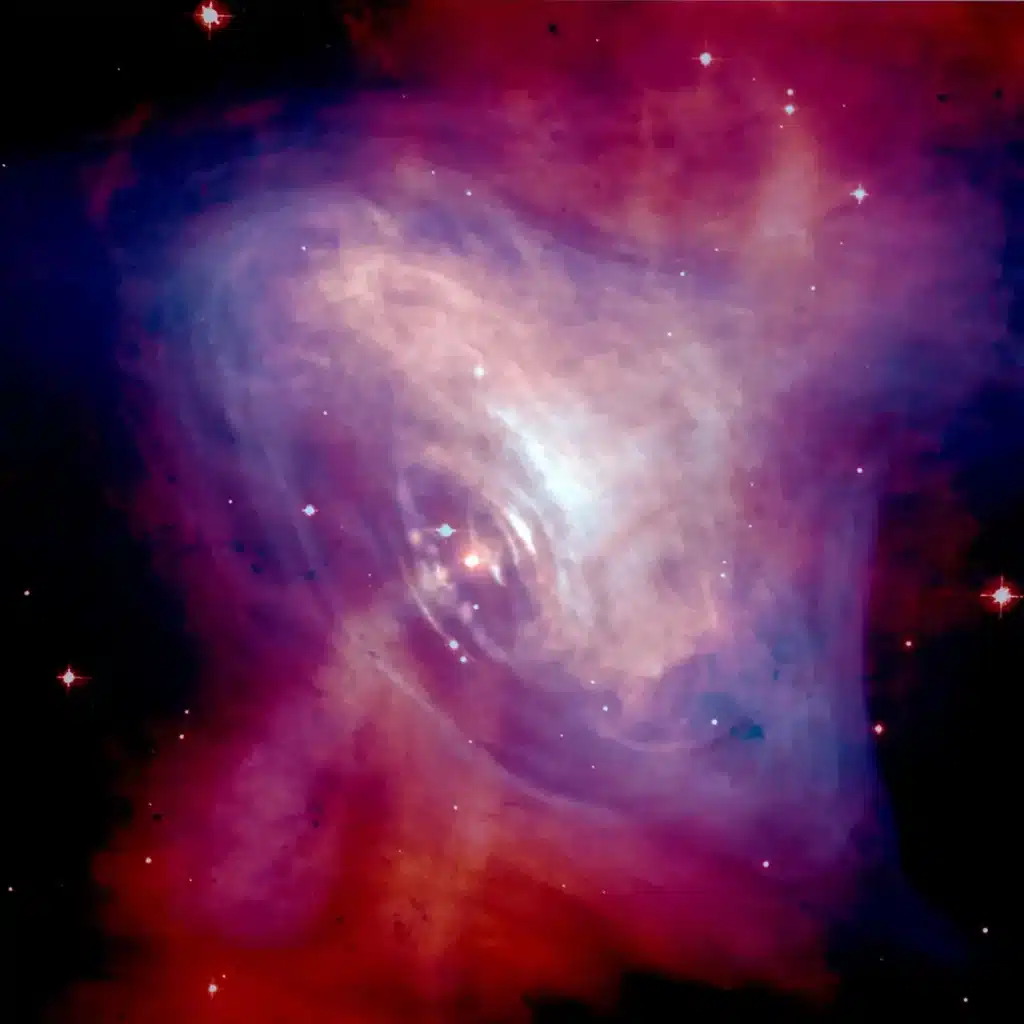
Earlier this year, scientists from Yonsei University say they were the first in the world to directly detect the elusive web-like dark matter filaments that underpin the structure of the universe. Does this new study throw cold water on their findings?
Rajendra Gupta, a physics professor at the University of Ottawa, is challenging the notion dark matter exists in a study published in the Astrophysical Journal. Gupta’s research employs a combination of the covarying coupling constants (CCC) and “tired light” (TL) theories, together known as the CCC+TL model. This innovative model posits that the forces of nature weaken over cosmic time and that light loses energy as it travels long distances. Gupta’s findings, which align with several observations about the distribution of galaxies and the evolution of light from the early universe, suggest that the universe operates differently than currently believed.
“The study’s findings confirm that our previous work about the age of the universe being 26.7 billion years has allowed us to discover that the universe does not require dark matter to exist,” explains Gupta in a media release. “In standard cosmology, the accelerated expansion of the universe is said to be caused by dark energy but is in fact due to the weakening forces of nature as it expands, not due to dark energy.”
The concept of “redshifts,” which occurs when light is shifted toward the red part of the spectrum, plays a crucial role in Gupta’s analysis. By examining data on the distribution of galaxies at low redshifts and the angular size of the sound horizon at high redshifts, Gupta challenges the cosmological necessity of dark matter.
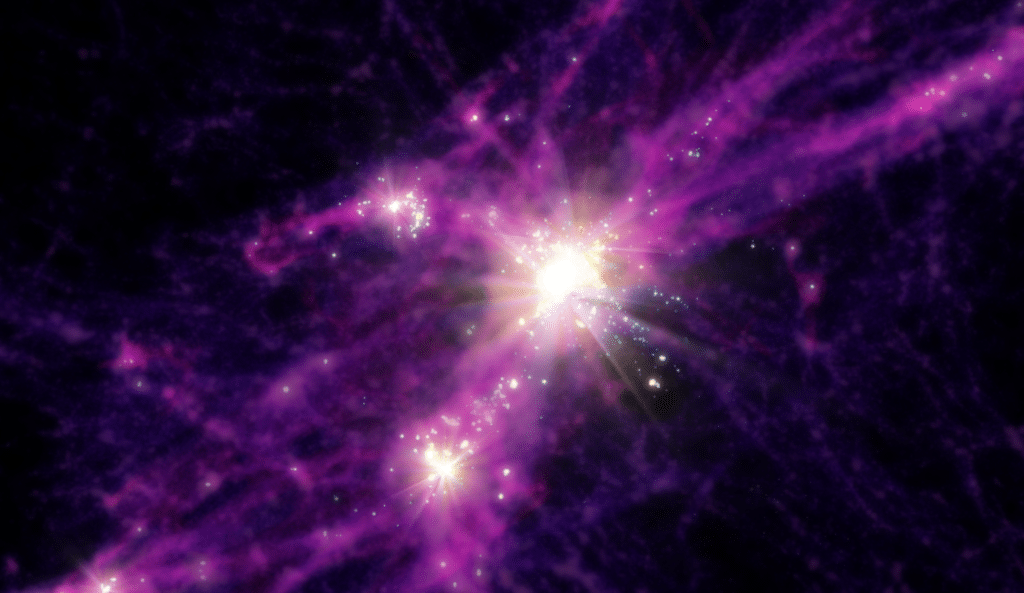
Gupta’s research stands out in the scientific community as it not only questions the existence of dark matter but also proposes a cosmological model that remains consistent with key observations.
“There are several papers that question the existence of dark matter, but mine is the first one, to my knowledge, that eliminates its cosmological existence while being consistent with key cosmological observations that we have had time to confirm,” notes Gupta.
This study opens new doors for understanding the fundamental properties of the universe. By suggesting a universe without dark matter, Gupta’s work invites scientists to explore alternative explanations for the phenomena that dark matter was theorized to explain. This paradigm shift could lead to significant advancements in our understanding of the cosmos and the natural forces that govern it.
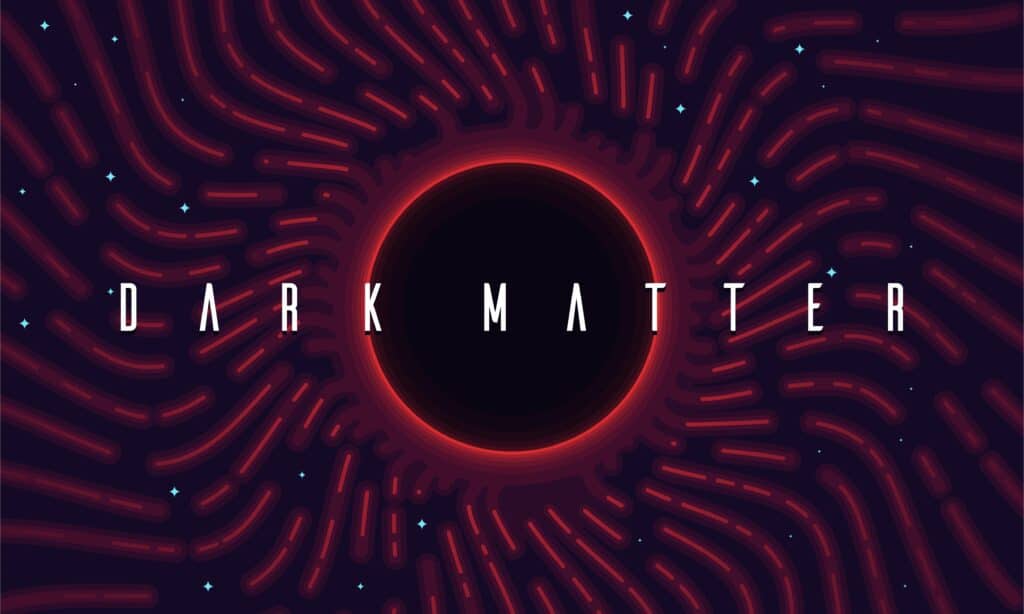
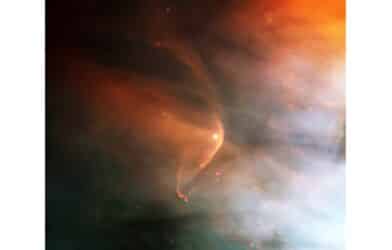
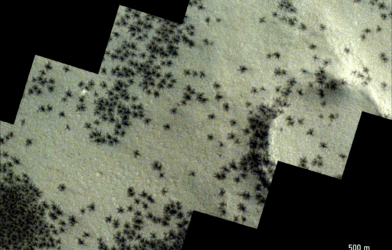
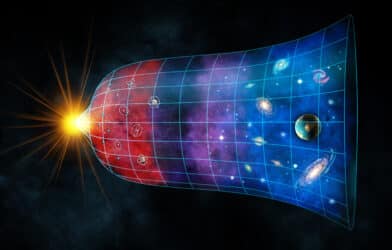
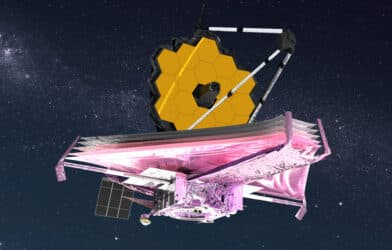
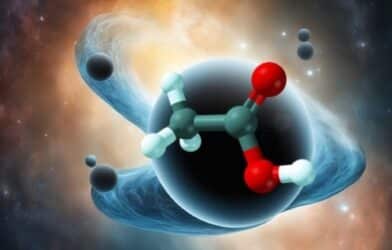
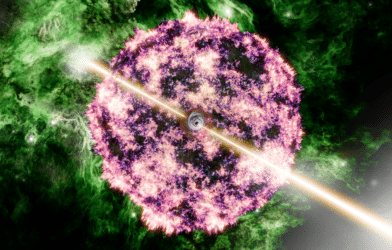
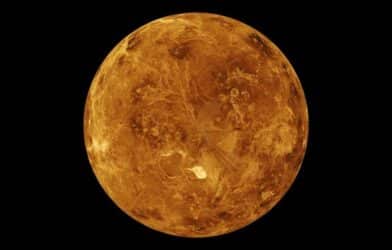
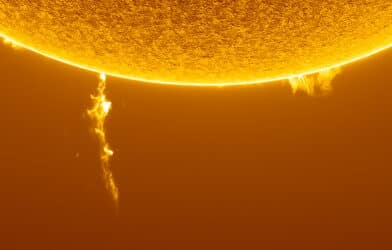

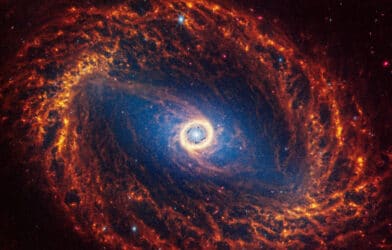
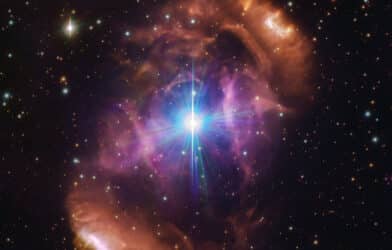
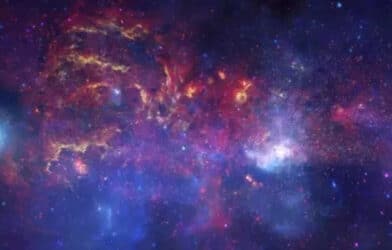
These science boobs know about as much about dark matter as they know about climate change. Just make up facts to support your ideology, then get the legacy media to beat people to numbness with them.
Amen. Reminds me of the phlogiston theory, a nonsensical attempt to explain combustion.
And guarantee the continuation of their funding…..
Yep
Agreed
I look forword to reading your paper challenging Mr. Gupta’s findings.
Warning: This may involve some Math.
M.Roustabout Onions
You don’t seem to understand how science works.
Thank you for questioning the establishment’s group think. Dark matter was a hypothesis created to support the underlying erroneous hypotheses of the Big Bang. To me the Big Bang doesn’t explain anything. What came before that? My personal hypothesis is that the universe is infinite in all dimensions, and beyond our finite perceptual capabilities.
Insightful commentary from the peanut gallery, as always.
What, pray tell, is the motive for anyone to “make up facts” about dark matter (though if you’d bothered to read the article or even the title you might have been informed that this particular paper actually posits the opposite, but I know such small details matter not to rural American luminaries like yourself of course)?
This is the way science works. A theory is proposed and compared with known data. If climate “scientists “ would be as open and transparent with their work it would stimulate real debate. It is the open debate and cross fertilization of ideas that push science forward.
And what ideology is dark matter being used to support, exactly?
Pretty sure Dr. Moshe Carmelli proposed a model decades ago which did away with dark matter and energy while still explaining all the observable phenomena. It was called Cosmological Relativity. Dark matter and energy have always been little more than fudge factors to keep standard big bang cosmology limping along. Curious to see if this new model is any more elegant and explanatory than Carmelli’s.
“detectable only through its gravitational effects”.
If there is a gravitational element to the dark matter theory how is this effect explained only by the change in the light spectrum? Or was there never an actual gravitational effect.
Genesis 1:1 – God spoke and BANG, there was everything. Pretty straight-forward.
I am sure you are correct, but don’t sit around waiting for science to prove it
WTF ???
Dark matter is complete and utter hogwash, is and always has been. You can toss string theory in the same garbage heap as well. This is all part of academic fraud, etc, and is so widespread it is truly mind-blowing.
Its just theories. They dont really know what drives our sun. They just have theories and instruments which give them the readings they were designed to look for to be interpreted by a priest of science to tell us what it means.
Climate catastrophe is also wrong.
The term “Dark Matter” is just a placeholder for an set of observations of unknown cause.
It looks to be matter that is not visible, but there are also theoretical postulates that gravity is modified in various ways to produce similar effects.
The general public don’t have the knowledge or expertise to have an opinion one way or the other, and neither does science at this point.
Ultimately Science is driven by observation, and in this instance due to scale and distance, there are insufficient observations to draw any conclusions.
Those who complain need to take a happy pill and go back to sleep. The world has better things to do than listen to your whining.
Science is driven by measurement, to be precise
So basically all the matter and energy, in fact the entire Universe of Space-Time created by the “Big Bang” is not simply expanding infinitely but is slowly dissipating (at an accelerating pace) back into whatever “medium” it originated from, much like a puff of smoke disperses into the air. As for Dark Matter and Dark Energy . . . exotic math and imaginative but . . . never mind.
I believe there is some conflation here in this article between dark matter and dark energy, two very different things.
There is much more to dark matter than just the age of the Universe.
The speed at which stars revolve our around the center of own galaxy cannot be accounted by baryonic matter alone — not even close.
Dark matter and dark energy have always been problematic because they’ve remained untestable. They’re strictly Theory without any means of verifying or rejecting said theory. It sounds like this gentleman has proposed the model of the universe that does not require either. Cosmology has been broken for a long time. So has all of physics really. Too much BS and hand waving by people in positions of authority who refuse to acknowledge new ideas. We like to think that science advances as a result of new evidence and ideas, but it advances as a result of attrition. Only when the Old Guard dies off is there room for new ideas to flourish. We are just entering into that phase in physics and cosmology, so hopefully the next 40 or 50 years will produce new ideas and new innovations.
they still use leeches
they still are leeches
100 years from now all this today’s “leeches” is older baloney…
In 40 years our understanding of science and the universe will be vastly different and again 40 years after that. Meanwhile, scientists of today fanaticize about their interpretations of limited and incomplete data sets and models.
Finally consensus science is turning around and seeing the writing on the wall. The universe is electric!
Why does all this even MATTER?
How does all this time and study make life better on Earth?
Nice to know, but not necessary….
Do something that counts.
Who, I ask, Farted?
Science of 21st century- virus stops with vaccinated person. We tested on eight mice.
The collective stupidity in these comments is voluminous enough to qualify as dark matter.
I’m waiting for some of the commenters here to grab some pitchforks and torches and go burn down the nearest library. After all, all those books are just jumbles of meaningless ideas that all disagree with each other. Fahrenheit 451 wasn’t supposed to be a how-to manual.
The emperor has no clothes. To prove it, here is a quote from the recent Space&Science Channel documentary: ‘The mystery of dark matter’.
The expert scientist said:
“We will only see dark matter when we see nothing”
REDICULOUS!?
Just returned from The Algarve. Vikings, visigoths, moors, Castilian, catholics, ottomans, Roman’s, and others have all relied upon fairy tales from Valhalla to the Garden of Eden to conquer the area – and that’s just in the past 3000 years. Thank you, scientists, for digging deeper and for not accepting anything as concluded.
Our present predicament in cosmology seem familiar to what happened before Copernicus, Galileo and Kepler.